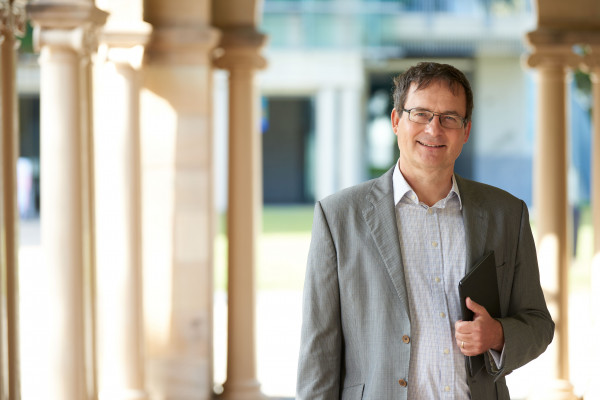RESEARCHERS examining the economic and psychological influences on decision-making have found that just a handful of shared success stories about carbon farming would convince many smaller farming enterprises to take up the practice.
Queensland University of Technology professor of behavioural economics Uwe Dulleck led a team that surveyed primary producers to identify viable co-operative strategies for carbon pooling in Australia.
“A lot of the work we do is looking at how people engage with technology and innovation, and behavioural economics is about helping people make better decisions for themselves, as judged by themselves,” Prof Dulleck said.
“We make the good decisions easy for people and in the context of this research we looked at what type of nudges farmers would need to start engaging with carbon farming.”
A key task was to identify how many carbon farmers it would take to convince others they should take up the practice.
“One of the interesting things about human behaviour is in some cases, we engage with new technology if we see some people do it successfully, while in other cases we want to see a majority of people are doing it before we engage,” Prof Dulleck said.
“Is it enough to have one or two role models before you jump on board, or do you only get on board if everybody else does it already?”
Prof Dulleck pointed to research that found when people are told that 90 per cent of people pay their taxes, it drives tax compliance even higher.
When people were told that 70 per cent of people attended medical appointments on time, punctuality fell.
“What we found with carbon farming, based on a small sample, was that it seems to be enough that only some people do it and you don’t need a majority,” he said.
“One of our recommendations is to document three or four cases of successful carbon farming for different regions and we believe that would be a major driver of uptake.”
But sometimes, simply making a decision can be difficult.
“If you are under economic pressure, you’re not as good a decision-maker,” Prof Dulleck said.
“Research has shown that even if I just get you to imagine you’re under economic pressure, your IQ drops almost 20 points. – Professor Uwe Dulleck”
Many people also display present bias, which is the prioritising of immediate rewards or avoidance of short-term discomfort or hassle.
An experiment by Nobel Prize-winning economists Esther Duflo and Michael Kremer found offering farmers in Africa free delivery on fertiliser just after harvest time, when they had an influx of money, increased fertiliser use by 47 to 70 per cent.
This effect was greater than that of offering free delivery and a 50 per cent subsidy on fertiliser later in the season.
“By setting up different decision environments, we can get better outcomes,” Prof Dulleck said.
The QUT research team recommended the information be framed according to behavioural economic theory, such as the EAST framework: Easy, Attractive, Social and Timely.
“An example of an ‘easy’ nudge would be granting farmers a minimum level of carbon credits just based on the country they have and the job they are doing, to get them thinking ‘should I do more?’ because the account is already set up,” Prof Dulleck said.
An “attractive” nudge could be creating social recognition by granting awards to farmers engaged in carbon farming, while a “social” nudge relates to the influence that others have on choices.
The full report is on the AgriFutures website.
















